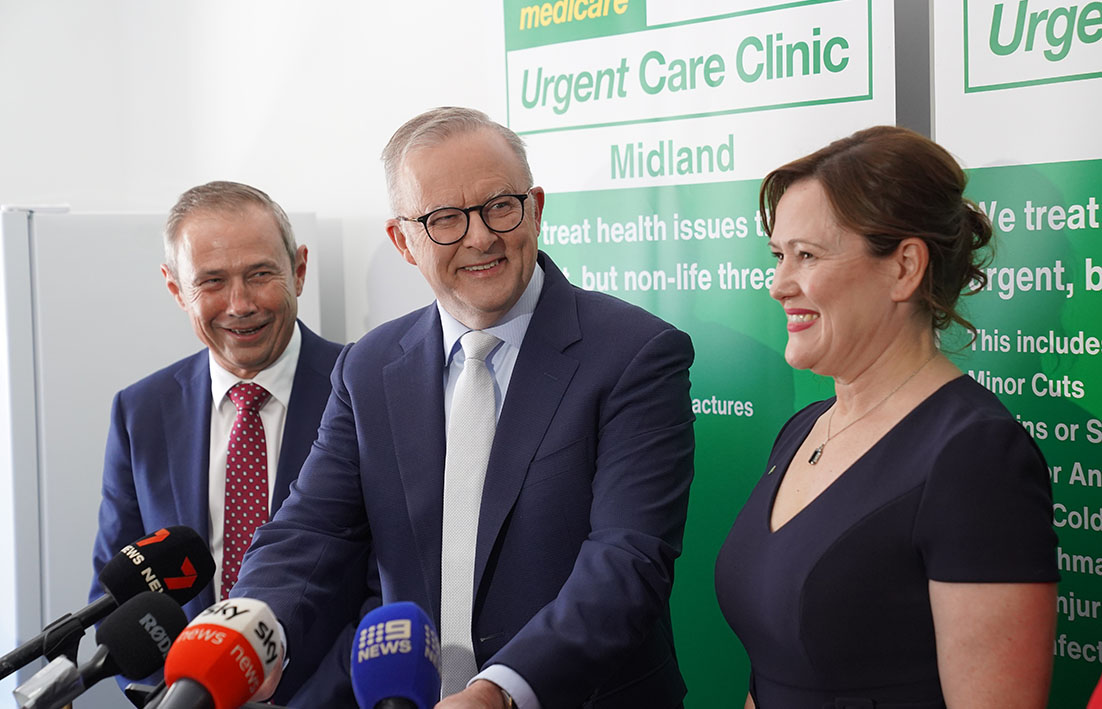
PRIME Minister Anthony Albanese visited the Midland Urgent Care Clinic on January 9 and among other topics spoke about improvements to healthcare affordability and accessibility despite new data outlining a decline in affordability.
Mr Albanese was joined at the centre by Premier Roger Cook, Hasluck MHR Tania Lawrence and Bullwinkel Labor candidate Trish Cook.
He said his government was exceeding the target of 50 urgent care clinics that were promised at the last election.
“We now have 87 which are open today,” Mr Albanese said.
“More than a million Australians have got the care that they need when they needed it through Medicare urgent care clinics.
“Importantly as well, this work has taken pressure off emergency departments.
“One in four of those people who’ve gone through clinics have been young people, people under the age of 15.
“So that if you have a health issue that is not life threatening, this is the place to come.
“Which is why so many families have benefited from Medicare urgent care clinics here in WA.
“More than 124,000 visits in WA.”
Mr Albanese said this has resulted in zero cost from patients as the amount was covered by Medicare.
“Zero to every single patient who’s come through because all they have needed is their Medicare card, not their credit card,” he said.
But according to the Royal Australian College of GPs a new report by healthcare directory Cleanbill highlighted the need for an urgent injection of funding in Medicare to support more bulk billing and reduce out-of-pocket costs.
The latest Medicare data showed 77.6 per cent of GP consults were bulk billed but Cleanbill’s independent report, released on Monday showed the percentage of practices bulk billing new adult patients without concession cards continued to fall, to 21 per cent.
The report also showed average out-of-pocket costs increased 4.1 per cent to $43.38.
Despite the multifaceted healthcare situation, Mr Cook said urgent care clinics, such as the one in Midland were important for alleviating pressures from the other loadbearing parts of the system.
“A strong primary healthcare system is fundamental to a healthy hospital system,” he said.
“We want people to get regular and ongoing care from their GP, or in places like this where they can get spontaneous unplanned care when someone’s had an accident, a disease, an onset of an illness, or you know, a broken bone.
“So these are important places to take the pressure off our (emergency departments).”